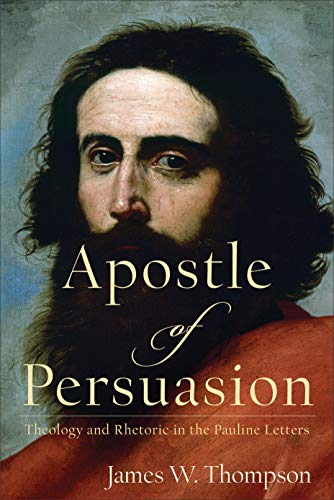First of all thank you very much for writing this insightful and helpful book. My students will be happy with its clarity of expression and the fact that the chapters are each of a manageable length so they can be read in one setting.
Q. You say in the introduction that you are focusing on the interface between Paul’s theology and his rhetoric. Was there an overarching reason you chose this approach as opposed to, say, focusing on the interface or interaction between Paul’s ethics and his rhetoric?
A. I chose theology and rhetoric because these two approaches appear to have inhabited two different worlds, and I have lived in both of them. Rhetoricians sometimes analyze as if only persuasion matters instead of truth. NT theologians compartmentalize Paul, discovering inconsistencies in his view or the law or eschatology without recognizing that Paul is engaged in persuasion. I suppose we are in a similar situation that is faced in Plato’s Gorgias: between philosophers who search for truth and the rhetoricians who only want to win arguments. For example, I have never been impressed by the argument that the theology of baptism in Col. 2 is a significant departure from Rom. 6, although different points are made. I don’t feel the need to harmonize the two, but I see different rhetorical purposes. This is the case with the statements on eschatology and the law. Statements are not always consistent, but in many cases these have to do with the rhetorical point he is making. I have not seen this kind of divide between ethics and rhetoric.












